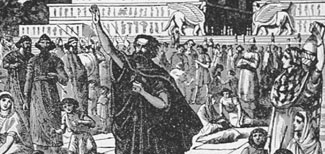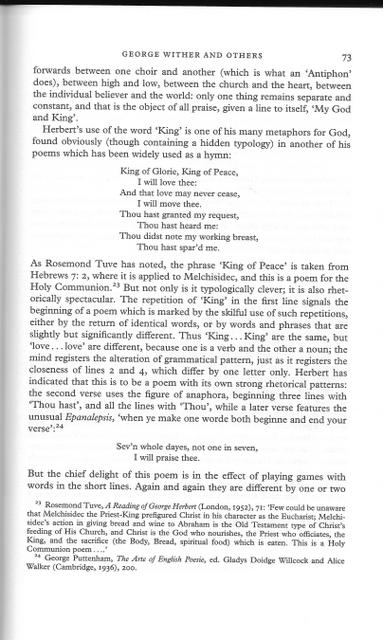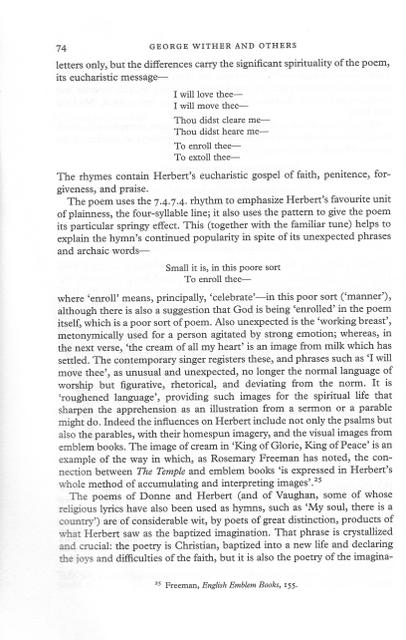
When I choose music for the postlude and prelude, the first thing I do is look over the hymns for the service. When I worked for the Roman Catholics I thought that preludes based on hymn tunes helped people learn and remember tunes. I saw myself as introducing a certain repertoire to be used by my community.

Working in my present gig, I have found that hymnody is already entrenched in this particular community. So I don’t feel the same responsibility to seek out material based on the hymns in a service, but it’s still a good place to start. Other times I like to play some good standard organ rep (like Bach or Buxtehude or even the dang romantic organ composers).
This Sunday our opening hymn is “I come with joy to meet my Lord” sung to the tune, Land of Rest.

The sequence hymn is “My God, thy table now is spread” sung to Rockingham. The closing hymn is If thou but trust in God to guide thee sung to the fine German chorale: WER NUR DEN LIEBEN GOTT.

After a half hour or so at the organ bench yesterday, I had pretty much decided on a setting of Rockingham by Kenneth Leighton for the prelude. The postlude will be the fifth variation from William Albright’s interesting little composition “Chorale-Partita in an Old Style on “Wer nur den lieben Gott lasst walten”. According to the notes with the piece, Albright wrote it when he was 18 years old. It’s a solid example of baroque writing.

I was just gathering up my things to go, when I decided to read through Sowerby’s setting of Land of Rest. I had dismissed it because it’s a big piece and it’s long. Sowerby (like many composers) really needs a bigger organ than I have with more possibilities for sound colors. It sometimes takes some time and cleverness to register these larger pieces on 12 ranks.
Anyway, the more I played the Sowerby the more I was convinced that it was a vastly superior piece of writing to Leighton’s respectable setting of the melody for the sequence hymn.
Before I knew it, I had worked on it for a couple of hours and realized that I wanted to learn it and perform this weekend.
![]()
I often identify with the story of Jonah in the Bible. God called him to do something. He refused and ended up in the belly of a large fish.
When the fish spit him out, he was convinced that he should do what God asked which was prophecy to the city of Ninevah.

They ignored him. He was bitter.

Like Jonah, I keep finding myself sucked into futile tasks. In my case it seems to be the art of church music.
This morning I read a beautiful analysis of George Herbert’s poem (edited into a shorter hymn form) by J.R. Watson in his The English Hymn. Watson almost mournfully writes about hymnody. He realizes that it is a dying idea, but is nevertheless convincingly in love with it.

Here’s a link to the words of the hymn. Here’s Jpegs of the pages of Watson’s commentary that I admire.

If you look at the footnote from Rosemond Tuve’s book, it mentions Melchisidec. This is a reference I never would have gotten with out reading about this.

I tucked photocopies of these pages into my Hymnal 1982 companion.
*********************************************************************
Mystery Tug on Pioneer 10 and 11 Probes Is Einstein’s ‘I Told You So’ – NYTimes.com
High beams and space archaeology.
*********************************************************************
Iraq Insurgents Kill at Least 100 After Declaring New Offensive – NYTimes.com
The war continues.
*********************************************************************
Peru – Death Squad Sentences Reduced – NYTimes.com
Wait until the world looks away, then we will exonerate the guilty.
*********************************************************************